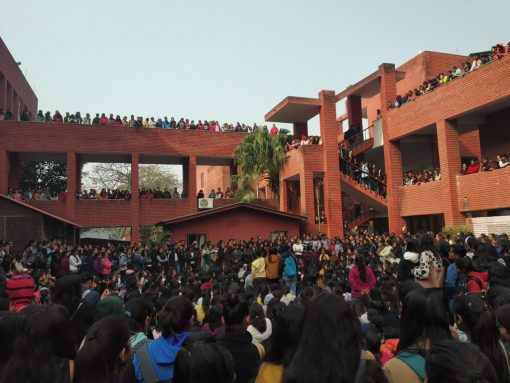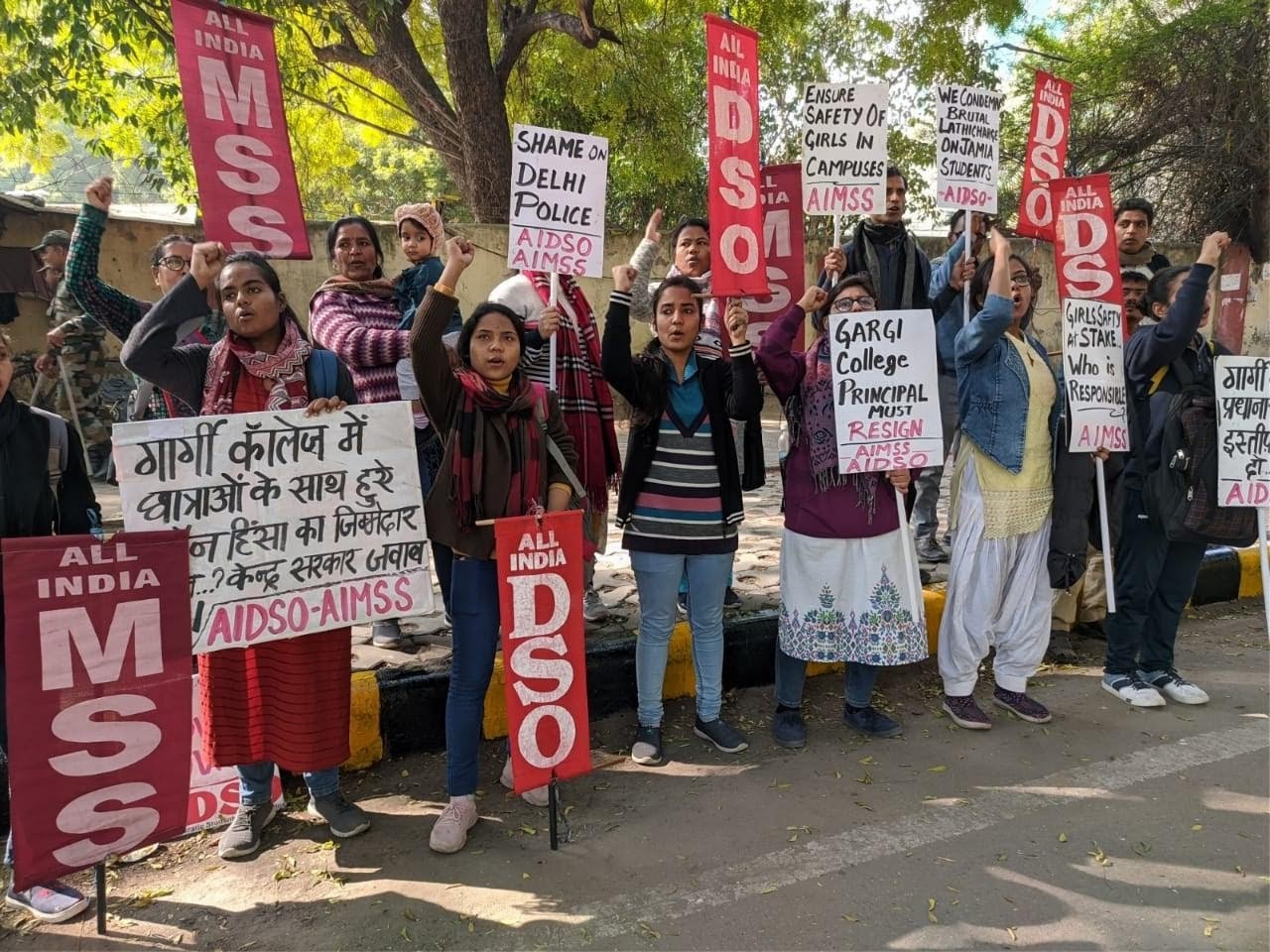Rising sexual assaults on Indian college campuses
“It’s not a secret that India, and especially Delhi, is not the safest place for a woman to be, but in a college campus at least one feels that they’re in a space where they can exist without the constant fear of something terrible happening. When that is not the case, there is really no safe space anymore,” Rajeshwari Singh tells Media India Group. Singh completed her Bachelor’s degree in Political Science from Janki Devi Memorial College of Delhi University (DU) in 2019.
The latest study by the University Grants Commission (UGC) of the ministry of Education, which was conducted in 2018, reported that out of the 188 universities mentioned, 171 reported complaints of sexual harassment. Moreover, there was a 50 pc increase in reported cases from 2016 to 2017.
One of the most recent campus rape cases took place on May 28, 2021at the Indian Institute of Technology Guwahati, where a student was arrested for allegedly drugging and raping a batchmate. The woman was brought to the hospital in an unconscious state.
“Delhi is one of the most unsafe cities in the world but since I grew up here, I just knew how to navigate and what I had been living with was like normal for me. But the college I attended was an all-girls one, so the campus was the safest I had felt in years. There have been multiple instances of assault or violence among my female friends and colleagues within co-ed institutions,” says Singh.
However, chilling incidents have taken place at all-girls colleges as well. Singh herself recalls one time when a man was found trespassing on campus and was masturbating in the bushes.
“It was horrifying, and raised a huge safety concern. From that point on, security was tightened even further to make sure the space inside the walls is at least safe,” she explains.
After the rape at IIT-G, what surprised both the doctors attending to the victim as well as the police was the university’s apparent unwillingness to cooperate with the investigation. Initially, the IIT-G officials moved the victim to another hospital against the doctors’ advice and stated that they had acted promptly after the incident and had even filed an FIR. However, the police reported that no such FIR had been filed by the institute and that they had not even responded to the probe. This is part of a troubling tendency in many Indian universities, where many students feel that their own college takes no real effort to help them.
There was a mass assault at Gargi College in New Delhi on February 6, 2020 when a large mob of intoxicated men pushed their way onto campus during its annual cultural festival, and many started masturbating at the girls and molested some of them. The incident was widely reported by media and had shocked the entire nation.

Masses of students gathered at Gargi College after administration’s lack of action
Adrika Deogharia, a final year post-graduate student at Gargi, was outraged when she heard about the incident from her peers the next morning.
“It wasn’t at all pleasant to hear that the students of my college had to go through such a traumatic experience, that too on a day when they had come there to have fun and enjoy themselves,” Deogharia tells Media India Group.
The most shocking aspect of the incident was that despite the students asking for help, the college security personnel just stood by and did nothing. Passes, which were required to enter the event, were not checked. When students later complained to the principal, Dr Promila Kumar, some students alleged that she had said, “Why come to the fests, if you do not feel safe?”
“The prompt action that was required from the university officials and the principal was not taken. Only after a lot of pressure from all the protests on campus and demonstrations on social media, where people from colleges all over the country came together to express their concern, the administration had to finally do something,” Deogharia adds.
Deogharia says that it is not only the students who are at risk, citing the recent incident in May, at Guru Jambheshwar University in Haryana where research scholar Sonia Dabas committed suicide after incessantly struggling with mental and sexual harassment from her mentor, under whom she was pursuing her PhD.
“She had complained, she had tried to fight back, but to no heed because the person who was heading the redressal cell was her guide, so there was no one to hear her out. And this incident was not properly reported in any major media channel or newspaper. I only got to know about it from her fellow scholars at the Democratic Research Scholars Organisation,” she says.
In 2016, the UGC made it mandatory for every college and university to have an Internal Complaints Committee (ICC) to address sexual harassment of women employees and students. However, the 2019 UGC study reported that 29 out 188 universities had not yet constituted an ICC and experts such as Dr Rajuben Desai, a member of the National Commission for Women in Telangana, said that most of the state’s universities did not have an ICC. Even when they do, students say they are often of no use.
“We assume that girls are safer in a girls’ college. When we join, we are told that there are grievance redressal cells where you can go and launch your complaint, but then when these incidents happen we cannot find or access that cell, it seems as if they are just phantom cells, they don’t even exist,” says Deogharia.

Posters with messages such as ‘Inquilab Zindabad’ (Long Live the Revolution) put up by protesting students at Gargi college (Photo: Syed Hussain)
Another major roadblock in reporting harassment is fear of repercussions and pressure from faculty that doing so will ruin the student’s future prospects.
“The teachers always say that if you try to complain, if you try to go against them, then your career will be jeopardised. So those students or scholars are always scared saying ‘our parents are spending so much money on us’. It becomes a choice between your career or your safety and self-esteem, but it should not be a choice,” she says.
Students say that campus authorities must ensure that they will protect the identity and the position of the student who brings forth a complaint in order to create a safe environment for these women to be able to speak about their abuse.
“Universities should establish a proper cell with a physical presence where we can go and request help, and we also have to be assured that it will not have any kind of academic influence on us. If girls can be assured that they will be supported by the institution, I think they would feel much safer there,” Deogharia adds.
“While some can afford the privilege of being able to sort through the trauma of those instances in therapy, many cannot. It would be helpful to have a counsellor in place who can provide help. Faculty and students should both be educated about the basics like mutual consent and more,” says Singh.
Finally, Deogharia says that one of the most important things that needs to change is Indian society’s mentality about sexual assault.
“I think every girl has faced something of this sort in her life. Sexual assault is not just physical; mental scarring is also a very big issue. People consider us as daughters, sisters, girlfriends, wives, but they fail to recognise us as human beings first. So that humanity needs to be upheld on academic campuses,” she says.










